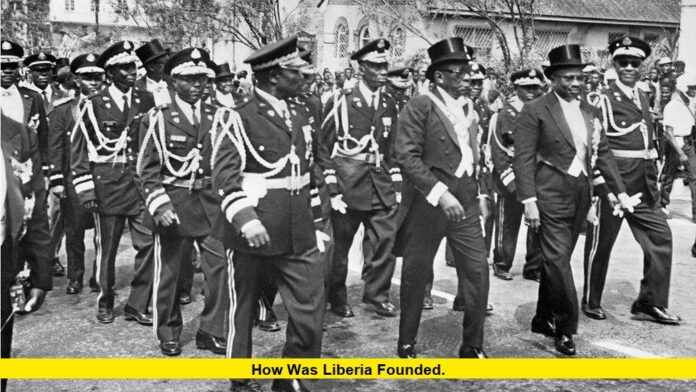Liberia’s founding is a story that continues to resonate in global discussions about freedom, identity, and nation-building. As the world’s first African republic to declare independence, Liberia’s origins are rooted in a unique blend of American history, African aspirations, and the enduring quest for self-governance. This article explores how Liberia was founded, highlighting recent conversations, commemorations, and digital content that keep its remarkable legacy alive.
How Was Liberia Founded: The Roots of a Nation
The question “how was Liberia founded” is central to understanding the country’s identity. Liberia was established in 1822 as a settlement for formerly enslaved and free-born Black people from the United States. The American Colonization Society (ACS), a private organization, spearheaded this effort, motivated by a mix of humanitarian ideals and the desire to address the growing population of free Blacks in America. These settlers, later known as Americo-Liberians, landed on Providence Island at the mouth of the Mesurado River, laying the foundation for what would become Liberia.
Between 1822 and the Civil War in the United States, more than 15,000 African Americans and nearly 3,200 Afro-Caribbeans relocated to Liberia. The settlers brought with them American customs, religious practices, and a vision of republican government, which would shape the nation’s early political and cultural landscape.
Key Point Summary
- Liberia was founded in 1822 as a settlement for free and formerly enslaved Black Americans.
- The American Colonization Society organized and funded the migration.
- Americo-Liberians became the dominant social and political class.
- Liberia declared independence on July 26, 1847, becoming Africa’s first modern republic.
How Was Liberia Founded: Independence and Early Challenges
The settlers’ journey was fraught with hardship. Disease, unfamiliar terrain, and conflict with local communities made survival difficult—records show that less than half of the earliest emigrants survived their first years. Despite these challenges, the colony grew, and by 1839, it was reorganized as the Commonwealth of Liberia, with increasing self-governance.
In 1847, under the leadership of Joseph Jenkins Roberts, Liberia declared its independence. The new nation adopted a constitution modeled after that of the United States, reflecting the settlers’ backgrounds and aspirations. Roberts became the first president, and Liberia quickly moved to establish its sovereignty on the international stage. Britain was among the first countries to recognize Liberia, while the United States delayed formal recognition until 1862.
Americo-Liberians maintained political and economic dominance for over a century, shaping Liberia’s institutions and often mirroring the social hierarchies they had left behind in America. This led to a complex relationship with the indigenous peoples of the region, whose integration into the new political system was slow and often contentious.
How Was Liberia Founded: Modern Reflections and Digital Commemoration
In recent years, the story of how Liberia was founded has seen renewed interest across social media platforms, educational YouTube channels, and Instagram accounts dedicated to African history. July 26, Liberia’s Independence Day, is marked by digital campaigns, historical retrospectives, and community events both within Liberia and among the global diaspora.
Trending Topics and Digital Engagement
- YouTube documentaries explore the lives of the early settlers, the role of the ACS, and the impact of Liberia’s founding on Pan-African movements.
- Instagram influencers and historians share archival images, personal stories, and infographics explaining the significance of July 26.
- Twitter threads highlight the contributions of key figures like Joseph Jenkins Roberts, as well as the ongoing debates about national identity and reconciliation.
The legacy of Liberia’s founding is also evident in contemporary politics and culture. The country’s constitution and flag still reflect their American origins, while ongoing efforts seek to bridge the historical divide between Americo-Liberians and indigenous communities. Annual Independence Day celebrations, both physical and virtual, serve as a reminder of Liberia’s unique place in world history.
How Was Liberia Founded: Lessons and Legacy
Liberia’s founding is not just a historical fact—it is a living narrative that shapes the nation’s identity and its place in the world. The establishment of Liberia as a haven for formerly enslaved people remains a powerful symbol of resilience and self-determination. At the same time, the complexities of its early social structure, the challenges of nation-building, and the legacy of Americo-Liberian dominance continue to influence national conversations.
Today, Liberians and their descendants around the world use digital platforms to reflect on their history, advocate for unity, and celebrate the achievements of Africa’s oldest republic. The question of “how was Liberia founded” is more than a matter of the past; it is a call to engage with the present and shape the future.
If you’re interested in learning more about Liberia’s founding, consider joining online history forums, following educational channels on social media, or participating in local events commemorating July 26. Share your thoughts, connect with the Liberian community, and help keep this extraordinary story alive for generations to come.
